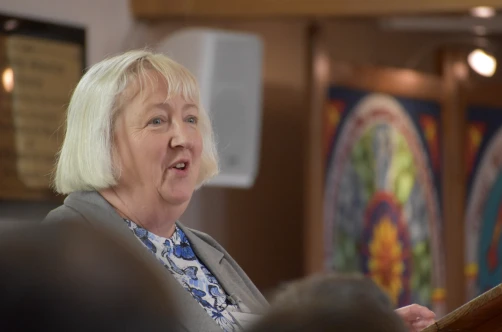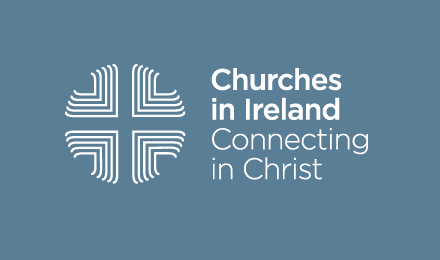
We are all keenly aware at the moment of our increased vulnerability. The sense that touching a lamppost or shopping trolley could be deadly is something we could not have imagined a few months ago. This has led to a realisation that we are responsible for one–another’s wellbeing, and new expectations for certain behaviours in public.
Yesterday I went for a walk in the park beside our house and a man barged past me on the way back out through the gate, stepping on my toe. I was shocked. It wasn’t a problem that he had hurt my toe, but I felt that he might have put my health in danger by bumping into me.
But the fact that we no longer metaphorically bump into one another is a great loss. For church communities the changes have been immense, with almost all church life moving online instantly, and the development of new ways to pray, worship, and have fellowship together. We are aware that many of our church members are now isolated and have difficulty connecting in these ways and have made sure they are contacted by phone and supported by neighbours and friends.
However, as Christians, we are called to look beyond our own immediate communities and friends, to those who are not blessed with a network of social and family connections near them. We have an obligation always to be asking ourselves “Who are the most vulnerable?”; “Who is being forgotten?”; “Who is being excluded?” So often the answer to these questions is the immigrant, the stranger.
In the Hebrew Scriptures the command to love the stranger occurs 37 times. Only once are we told to love our neighbour; and in Jesus parable illustrating that command the “neighbour” is a Samaritan – a stranger (even an enemy) to the Jews at that time. So our moral horizon of inclusion is to encompass all whom we encounter; all who are here.
In Ireland we have a long history of institutionalising inconvenient populations. In the case of asylum seekers we have also made this a profit centre, with an implicit incentive to accommodate as many people as possible in each institution, to increase the profit margin. Although the Department of Justice has increased capacity in the system in the wake of the coronavirus pandemic, there are still over 1,700 people sharing a room with non–family members. This is not to mention the impossibility of social distancing and maintaining hygiene with shared bathrooms, canteen or kitchen facilities, and outdoor space.
Unsurprisingly there have been several clusters of covid–19 cases in direct provision centres, most notably in the Skelling Star Hotel in Cahersiveen where at least 20 have tested positive and been moved out of the centre. The fact that people were moved there in mid–March from a hotel in Dublin where a case of Covid–19 had been recorded raises questions about the strategy of the Department of Justice to address coronavirus in direct provision centres.
What has the local response been? Understandably there has been a lot of anxiety and fear. Local politicians have demanded that the residents of the Skelling Star be moved back to the centre they were in before, near Dublin. The Caherciveen business and community alliance has also called for the centre to be closed, but is emphatic that this is not a rejection of the asylum seekers themselves, but out of concern for their safety. The residents themselves are also demanding to be moved out, terrified of becoming infected themselves.
The Department of Justice is now left in a very challenging situation with an overcrowded direct provision system, where social distancing is impossible. The situation demands not the closure of existing centres, but the opening of more. Advocacy group Doras has called for a much more ambitious intervention from the department, with full implementation of the HSE standards for social isolation, meaning that nobody should share a room with non–family members. They point out that the crisis has led to increased availability of short term accommodation which could be used for this purpose to ensure the safety of residents and the local community.
We need to balance measures to alleviate the suffering of people stuck in a broken system, with critique of the system itself. Recent reporting has revealed that over the 20 year course of the direct provision system the state has paid over €1,300,000,000 to private contractors accommodating residents. This marketisation of humanity has left us with a system that is abusive at the best of times and a danger to lives of both the residents and the surrounding community at this time of crisis.
It is a result of the broken value systems that we have allowed to shape our societal institutions – removing troublesome populations from our sight, and commercialising the provision of social services.
As churches we must ask ourselves how we can respond locally and nationally, by living in ways which respect the dignity of the most vulnerable and serve the common good.
In short, how can we better love our neighbour here?





